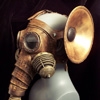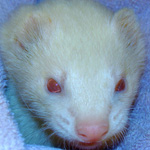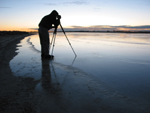is anesthesia during surgery dangerous for apnea patients
-
birdwood
is anesthesia during surgery dangerous for apnea patients
I propose to undergo surgery shortly. I am presently using bipap auto machine for my apnea. I would like to get expert opinion of the very informed members of this forum, whether administration of anethesia during surgery is dangerous for apnea patients.
Re: is anesthesia during surgery dangerous for apnea patients
My opinion is far from an expert opinion. But very often after you become unconscious an endotracheal (ET) tube or a laryngeal mask airway (LMA) is used to deliver oxygen enriched air. A minimum of your breathing, oxygen level, heart rate, blood pressure are monitored. However you should have a moment to speak with your Anesthesiologist prior to the surgery, and informing them of your use apnea medical devices would be advisable but probably unnecessary.
_________________
| Mask: AirFit™ F10 Full Face Mask with Headgear |
| Humidifier: S9™ Series H5i™ Heated Humidifier with Climate Control |
| Additional Comments: Machine: S9 VPAP Adapt (eASV) 36037 |
Mode: ASVAuto, Min EPAP: 4, Max EPAP: 15, Min PS: 3, Max PS: 15, Ramp: Off - Original Titration: 18
Re: is anesthesia during surgery dangerous for apnea patients
Anesthesia is no more dangerous for a person with apnea than without, as long as the anesthesiologist KNOWS you have a compromised airway. While they WILL handle whatever problem you might have during surgery, they will appreciate the heads up. It may affect which medications are used during surgery and dictate a smaller vent tube for your operation if you have a small airway (many with OSA do).
Here are a few suggestions:
1. Make sure your SURGEON knows you have OSA, and the severity before it was treated. His notes to the anesthesiologist should include that. He should also include use of your cpap machine should you have to remain in hospital overnight. Not having this in your notes can cause delay, depending on hospital policy.
2. When you see the anesthesiologist, TELL HIM/HER you have apnea; don't assume he's read the surgeon's notes, or if he has, that he remembers every single thing. They appreciate you letting them know.
3. Take your cpap machine to the hospital with you. Even if it's same-day surgery where you go home soon after, things happen. Sometimes they decide you need to stay overnight, so having it with you could save time.
4. They might want you to have your machine in the recovery room just in case. Usually you remain on oxygen at least until you leave recovery, so this will likely not be an issue, but hospital policy varies.
Good luck with your surgery!
Here are a few suggestions:
1. Make sure your SURGEON knows you have OSA, and the severity before it was treated. His notes to the anesthesiologist should include that. He should also include use of your cpap machine should you have to remain in hospital overnight. Not having this in your notes can cause delay, depending on hospital policy.
2. When you see the anesthesiologist, TELL HIM/HER you have apnea; don't assume he's read the surgeon's notes, or if he has, that he remembers every single thing. They appreciate you letting them know.
3. Take your cpap machine to the hospital with you. Even if it's same-day surgery where you go home soon after, things happen. Sometimes they decide you need to stay overnight, so having it with you could save time.
4. They might want you to have your machine in the recovery room just in case. Usually you remain on oxygen at least until you leave recovery, so this will likely not be an issue, but hospital policy varies.
Good luck with your surgery!
Re: is anesthesia during surgery dangerous for apnea patients
What has been said above is good advice. For major surgery you don't have to worry. They will take care of you just fine in the operating room. It's in the recovery room that things get tricky. You really need to stress to your surgeon that you have a machine that needs to be put on in recovery. If you don't, then most hospitals will not use it on you. You have to find the charge nurse of recovery and have it set up that you have to have it on. Have your family or if you have to, tell the charge nurse that it has to be put on you immediately when you come to your room. Set it up before you go to surgery so that it's ready to roll when you come back if they won't put it on in recovery.
Good luck with your surgery. I have tried about 3 times now for my machine to be used in recovery and it hasn't happened yet, but it's always put on the minute I get to my room.
Good luck with your surgery. I have tried about 3 times now for my machine to be used in recovery and it hasn't happened yet, but it's always put on the minute I get to my room.
_________________
| Mask | Humidifier | |||
 |  | |||
| Additional Comments: Saying good-bye to . .191 obstructive apneas. 214 hypopneas. AHI 79.9. | ||||
"It's amazing how someone can break your heart and you can still love them with all the little pieces"
Re: is anesthesia during surgery dangerous for apnea patients
Birdwood,
Good luck with you surgery! I have had several surgeries while on cpap. As others have said, do tell the anesthesiologist and the surgeon that you have OSA. You will be incubated during surgery, and they will pay special attention to your needs.
Yes, do take your machine to the hospital to use while you are recovering. I am sure that the doctors and nurses there in the UK will take excellent care of you.
Be assured of my love and prayers.
amos
Good luck with you surgery! I have had several surgeries while on cpap. As others have said, do tell the anesthesiologist and the surgeon that you have OSA. You will be incubated during surgery, and they will pay special attention to your needs.
Yes, do take your machine to the hospital to use while you are recovering. I am sure that the doctors and nurses there in the UK will take excellent care of you.
Be assured of my love and prayers.
amos
_________________
| Mask: Mirage Activa™ LT Nasal CPAP Mask with Headgear |
| Humidifier: S9™ Series H5i™ Heated Humidifier with Climate Control |
Re: is anesthesia during surgery dangerous for apnea patients
I had shoulder surgery in Oct. I made sure all were aware I had sleep apnea and that it was noted on the Anesthesia notes. Went out and woke up all was fine.
Re: is anesthesia during surgery dangerous for apnea patients
birdwood wrote:I propose to undergo surgery shortly. I am presently using bipap auto machine for my apnea. I would like to get expert opinion of the very informed members of this forum, whether administration of anesthesia during surgery is dangerous for apnea patients.
There are two situations they plan for. If you have apnea, I think they use a longer tube that eliminates the uvula problem. The other problem is after the surgery. They want to be sure that when you are in recovery and sleeping that your apnea doesn't kick in without a machine and they even get touchy about your being driven home in a car where you could fall asleep without a machine.
What I don't understand is, can apnea kill you from one session or is it the cumulative effect of all the years without a machine? When you go for a 2 part sleep study, the first day is dangerous because you try not to sleep the night before and in the first phase, there is no OSA therapy...they just count the occurrences. Driving home after the first phase of my last sleep study was an adventure as I couldn't keep my eyes open.
Re: is anesthesia during surgery dangerous for apnea patients
I had a catheter procedure a few weeks ago to correct atrial fibrillation. It is typically done with sedation rather than anesthesia. Because the doctor knew of my Cheyne-Stokes respirations which require a BiPAP, they elected to do general anesthesia with intubation. He told me that if they did the more typical sedation and then during the procedure I stopped breathing it would require them to stop what they were doing and get my breathing started again. He did not want the distraction so they just knocked me out and intubated me.
In recovery, they had me on an oxygen mask for awhile but other than that there were no issues. The nurse knew that my BiPAP machine was available if there was a need. Thankfully it never was an issue.
Tony
In recovery, they had me on an oxygen mask for awhile but other than that there were no issues. The nurse knew that my BiPAP machine was available if there was a need. Thankfully it never was an issue.
Tony
_________________
| Mask: Mirage Quattro™ Full Face CPAP Mask with Headgear |
| Additional Comments: EPAP = 12 / IPAP = 12-20 / Backup rate = AUTO / Central Sleep Apnea - Cheyne-Stokes Respirations diagnosed May 29, 2009; otherwise healthy |
- JohnBFisher
- Posts: 3821
- Joined: Wed Oct 14, 2009 6:33 am
Re: is anesthesia during surgery dangerous for apnea patients
Just an addition to the other excellent replies.
For folks who have significant central sleep apnea, you need to stress that you have central sleep apnea. Since opiates and other drugs can depress breathing, this can become a severe issue with someone who struggles with central sleep apnea. If you have an ASV machine, it will be essential to have it available during recovery.
Again, discuss it with the anestheseologist (spelling?) and surgeon. Also, check to be certain someone will be available to help fit the mask in the recovery room. That's where there are often problems. Though they should allow the use of an xPAP therapy device, some patients often encounter problems in the recovery room.
For folks who have significant central sleep apnea, you need to stress that you have central sleep apnea. Since opiates and other drugs can depress breathing, this can become a severe issue with someone who struggles with central sleep apnea. If you have an ASV machine, it will be essential to have it available during recovery.
Again, discuss it with the anestheseologist (spelling?) and surgeon. Also, check to be certain someone will be available to help fit the mask in the recovery room. That's where there are often problems. Though they should allow the use of an xPAP therapy device, some patients often encounter problems in the recovery room.
_________________
| Mask: Quattro™ FX Full Face CPAP Mask with Headgear |
| Additional Comments: User of xPAP therapy for over 20 yrs. Resmed & Respironics ASV units with EEP=9cm-14cm H2O; PSmin=4cm H2O; PSmax=15cm H2O; Max=25cm H2O |
"I get up. I walk. I fall down. Meanwhile, I keep dancing” from Rabbi Hillel
"I wish to paint in such a manner as if I were photographing dreams." from Zdzisław Beksiński
"I wish to paint in such a manner as if I were photographing dreams." from Zdzisław Beksiński
Re: is anesthesia during surgery dangerous for apnea patients
some of us have worse problems with anesthesia.
They sedated me when I tried to have a septoplasty done... then they tried to intubate me. My airway collapsed and the surgery was scrubbed.
They sedated me when I tried to have a septoplasty done... then they tried to intubate me. My airway collapsed and the surgery was scrubbed.
- Jersey Girl
- Posts: 690
- Joined: Thu Feb 04, 2010 9:28 am
Re: is anesthesia during surgery dangerous for apnea patients
I agree - it is VERY important to tell both your surgeon and Anesthesiologist. I was intubated and then woke up with a full face oxygen mask in a slightly sitting up position. That was a longer surgery, however.
My shorter breast surgery needed no breathing tube, a light sedation and I woke up much more easily.
These were same day surgeries and my cpap was ready for me when I went home so that I could take a nap immediately with my machine. However, it is always a good rule of thumb for someone to bring your machine to the hospital with you just in case a same day surgery becomes an overnight stay.
Since your anesthesiologist will be aware of your sleep apnea, you will be fine.
Wishing you a full and complete healing,
Jersey Girl
My shorter breast surgery needed no breathing tube, a light sedation and I woke up much more easily.
These were same day surgeries and my cpap was ready for me when I went home so that I could take a nap immediately with my machine. However, it is always a good rule of thumb for someone to bring your machine to the hospital with you just in case a same day surgery becomes an overnight stay.
Since your anesthesiologist will be aware of your sleep apnea, you will be fine.
Wishing you a full and complete healing,
Jersey Girl
_________________
| Mask: Swift™ FX Nasal Pillow CPAP Mask with Headgear |
| Additional Comments: Pressure - 8, CMS 50D+ Pulse Oximeter, Regenesis cpap pillow, Pursleep scents, padacheek fleece hose covers |
Happiness is from the heart out, not the world in.
Re: is anesthesia during surgery dangerous for apnea patients
Brilliant advice in the above replies. Best to be prepared. I had uneventful back surgery in 2006 but stopped breathing several times in recovery. We had my old Respironics tank and Comfort Classic mask there, ready to go. Anesthesiologist and nurses slapped it on me and all was well.
Good luck!
Good luck!
Re: is anesthesia during surgery dangerous for apnea patients
STL Mark wrote:My opinion is far from an expert opinion. But very often after you become unconscious an endotracheal (ET) tube or a laryngeal mask airway (LMA) is used to deliver oxygen enriched air. A minimum of your breathing, oxygen level, heart rate, blood pressure are monitored. However you should have a moment to speak with your Anesthesiologist prior to the surgery, and informing them of your use apnea medical devices would be advisable but probably unnecessary.
Excellent reply. After the ET tube is placed, OSA diagnosis is irrelevant. With the ET tube in place, other potential issues might occur, below the ET tube, such as bronchospasm, would be of concern.
_________________
| Mask: Mirage™ FX Nasal CPAP Mask with Headgear |
| Humidifier: S9™ Series H5i™ Heated Humidifier with Climate Control |
- socknitster
- Posts: 1740
- Joined: Fri Jun 01, 2007 11:55 am
- Location: Pennsylvania
- Contact:
Re: is anesthesia during surgery dangerous for apnea patients
All good advice. They watch you very carefully after surgery too. I've had three surgeries in recent years. I have distinct memories of a nurse sitting at my bedside after my tonsillectomy and shaking me every so often and telling me to breathe. I imagine she was watching my pulse ox numbers. Due to the nature of the surgery I had to forego cpap for a few weeks afterwards so I slept sitting up in a recliner until I was able to use the machine and sleep in bed.
If your apnea isn't well-controlled and you have high blood pressure, that can actually be more of an issue. I had some serious bleeding issues directly after nasal surgery because of this. It was a year before my diagnosis of sleep apnea. My blood pressure had been well controlled with medication but the stress of the surgery made it go crazy. I was lucky that it has completely resolved on cpap and no longer requires medication.
My sister is a cardiac ward nurse and she told me once that a cardiac doc told her that a lot of his patients reveal themselves as having sleep apnea during surgery. It's a shame they weren't screened and diagnosed before they got to that kind of health condition!
If your apnea isn't well-controlled and you have high blood pressure, that can actually be more of an issue. I had some serious bleeding issues directly after nasal surgery because of this. It was a year before my diagnosis of sleep apnea. My blood pressure had been well controlled with medication but the stress of the surgery made it go crazy. I was lucky that it has completely resolved on cpap and no longer requires medication.
My sister is a cardiac ward nurse and she told me once that a cardiac doc told her that a lot of his patients reveal themselves as having sleep apnea during surgery. It's a shame they weren't screened and diagnosed before they got to that kind of health condition!
_________________
| Machine: ResMed AirSense™ 10 AutoSet™ CPAP Machine with HumidAir™ Heated Humidifier |
| Mask: ResMed AirFit™ F30 Full Face CPAP Mask with Headgear |













